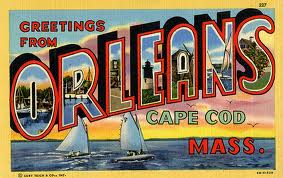Things are happening in our town.
Lots of things.
Issues are on the table that will dramatically shape the future of Orleans — including the selection and hiring of a new Town Manager, the District-wide vote on the Nauset Regional High School Building project cost increase, the new Fire Station, completion of downtown sewering, the Community Center and Recreation Department studies, further consideration of a short-term rentals registration program, and plans for the Governor Prence properties and other housing initiatives.
With so much at stake, EXIT 89 will be publishing occasional newsletters designed to keep you up to speed on the most important matters facing our town.
Make a pot of tea, get comfortable — and read on.

Recruiting a New Town Manager
Our current Town Manager, John Kelly, will be retiring after 26 years in the job. This is an important moment for Orleans; the right individual, with experience, vision, and ability could help shape our future and lead us into a new and exciting era. What does the process of finding his replacement look like?
The Select Board interviewed two potential search firms at their meeting on November 2, and the choice of a firm is expected soon. The Select Board has also met with a pool of applicants to serve on a seven-member citizens’ search committee. (You can watch these interviews at Select Board meetings on December 7 and December 14.) The individuals selected to serve on the committee: Ginny Farber, Michael Gradone, Alan McClennen, Sims McGrath, Michael McNamara, Sue Meisinger and Ben Zehnder. They will be scheduling discussion sessions with town staff, residents and other stakeholders to study “the qualities, strengths and characteristics required for a successful Town Manager” and ultimately recommending a group of finalists for the position to the Select Board. (To see what the search committee has been charged with accomplishing, click here.)
Our new Town Manager is expected to be in place by May’s Annual Town Meeting. Until then, Charles Sumner, formerly Town Administrator in Brewster, and Interim Town Manager in both Provincetown and Wellfleet, will serve as a part-time consultant to Orleans during December, and then as interim Town Manager for three months, beginning January 1.
What does a Town Manager really do?
What qualifications should we seek in our next one?
EXIT 89 will be publishing a deep dive in early winter examining the parameters of the job and the impact made by Town Managers (aka Town Administrators) around the Cape.
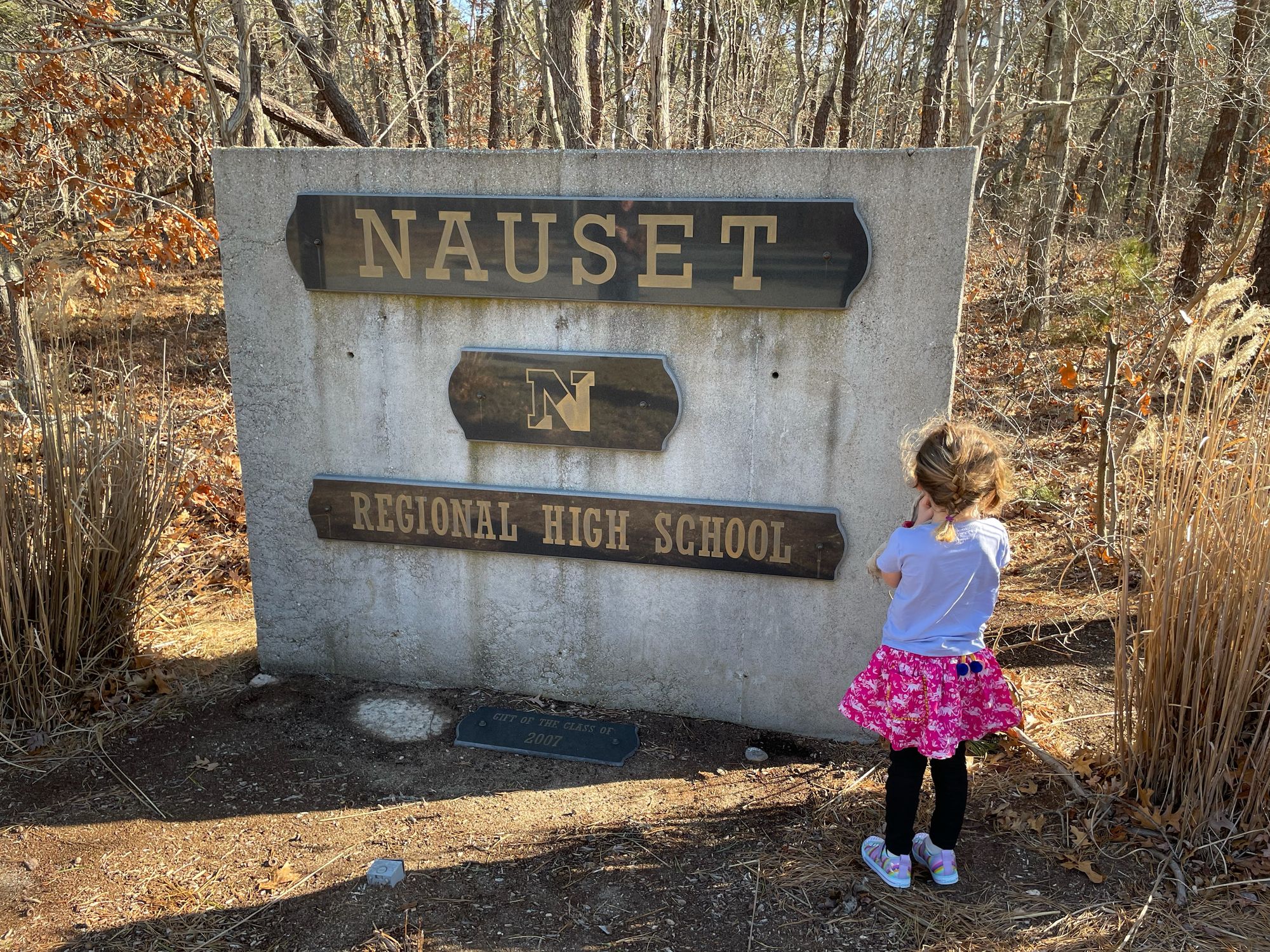
VOTE: The Nauset High School Building Project
The Nauset Regional High School Building project is underway. The planned modular classrooms should be ready for occupancy in early 2023. (To read the March 2021 EXIT 89 deep dive on the Nauset Building Project, click here.) But the project’s price tag has gotten bigger — $38.1 million bigger — and the main construction project is currently on hold, pending a district-wide vote on January 10. You can read an update from Nauset District Superintendent Brooke Clenchy here. You can find a list of FAQs and answers here. And you can find a concise breakdown of what’s contributing to the cost increase here.
Representatives from the Nauset Regional School Committee made a presentation at a joint meeting of the Orleans Select Board and Finance Committee on December 14, to explain the key components of the project cost increase.
What could this mean for Orleans residents? At a presentation made to the Select Board on December 14, the estimate for Orleans property owners for a 25-year bond at 4.5 percent interest would be an additional $40.38 for every $100,000 of home value, per year, through 2049.
Proponents of continuing with the project say that while paying more is not anyone’s ideal scenario, we need to follow through with what we started, and that the completed facility will be a major asset to all the towns in the District, possibly drawing young families to the region. And, they say, a state-of-the-art campus could serve many purposes — a joint middle and high school, an extension campus for Cape Cod Tech or Cape Cod Community College, adult or continuing education, and performance space for arts and cultural events, to name a few.
Those against proceeding with construction argue that the project is too big, considering the District’s declining enrollment, and that a pause should be taken to figure out how to reduce its size and cost.
According to a public letter from Nauset District Superintendent Brooke Clenchy, the District has reached out to multiple legislators requesting relief, in light of the increase. “We are not the only school district in Massachusetts that is experiencing this,” Clenchy continues. “These are challenging times, and we recognize that.”
There will be two ballot questions on January 10, when each town in the Nauset School District will vote. (To see a sample ballot, click here.)
The first question, put to the entire Nauset School District, will ask voters whether to move ahead with the project. A District-wide simple majority is needed to pass.
If Question #1 passes:
— The project continues as scheduled, with only a slight initial delay.
— The project is expected to meet its original completion date of April 2025.
— The Nauset School District will have a complete, state-of-the-art facility, designed to last 50 years or more.
If Question #1 fails:
— All work on the NRHS Building Project would cease.
— The School District would lose the $36.6 million currently pledged from the Mass School Board Authority – and go to the back of the queue for funding consideration for any future project.
— $24-28 million has already been spent; the Nauset School District will need to issue a bond to cover this debt, and would assess the District towns annually for payment.
— Building plans would start over again, estimated to take 5-10 years, putting off the completion of a new building or a renovation of the existing building to at least 2030-2035.
— Throughout these years, the aging high school and the mobile classrooms would continue to require maintenance.
The second question on the Orleans ballot is specifically for Orleans voters, asking us to approve a debt exclusion for our share of the cost increase. If this measure fails, the increase will have to be paid from the Town Operating Budget. Each of the District towns will have their own version of this second ballot question. (To see a sample ballot for the Orleans-only vote, click here.)
EXIT 89 will send a reminder, urging you to get to the polls on January 10. Voting will take place at the Council on Aging Senior Center from 11 AM to 7 PM. You will be able to vote early, by mail. But there will be no early in-person voting at Town Hall for this special election.
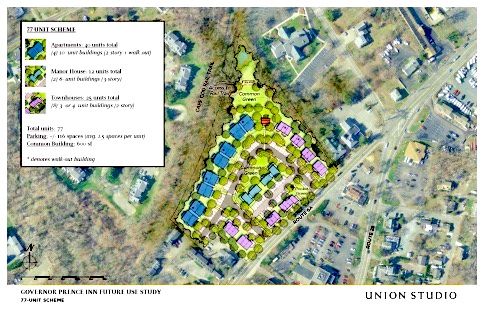
Governor Prence + the Orleans Housing Crisis
A planning committee tasked with determining the best uses for the former Governor Prence properties, a 5.5 acre parcel between Route 6A and the bike trail, reached its conclusion in October after 13 months of meetings, surveys, and extensive community input. The clear consensus: Housing.
The committee recommended a livable, multi-family solution with a maximum of 77 units (a number determined by current town zoning restrictions), up to three stories in height (also a town zoning restriction), with “adequate internal open space,” and possibly incorporating a clubhouse or community area.
To see the final redevelopment report, click here. (To see the September 2021 EXIT 89 deep dive on the Orleans Housing Crisis, click here.)
Before the town can begin the process of soliciting specific proposals for the Governor Prence site, the Select Board and the Affordable Housing Trust Fund Board agreed to a preliminary step of putting out an RFI (Request for Information) to experienced potential developers. The RFI will garner feedback, due by December 22, on the site’s potential and how best to utilize it. For example, with sewers in place (which will allow the total number of housing units downtown to increase) some existing Town zoning restrictions, like density and building height, may warrant revisiting — information that should be gleaned from the RFI.
Other housing projects are underway. Pennrose, the developer of the former Cape Cod Five Operations Center, on West Road, expects to break ground on 62 affordable housing units in 2023. A project with another 14 multi-family units at 107 Main Street in East Orleans, being developed by the Housing Assistance Corp (HAC), has been permitted and approved for funding, with construction expected to start in 2023 or 2024.
And Bayberry Plaza on Route 6A — commonly known as the “Underground Mall” — is being redeveloped by Boston-based Maple Hurst Builders to create Orleans Plaza, 42 one- and two- bedroom rental units. Five units will be specifically designated as “affordable,” and more will be “modestly priced workforce housing,” according to the developer’s website. Plans have been approved by the Old Kings Highway Regional Historic District Commission, and will be reviewed by the Cape Cod Commission and the Orleans Planning Board. To see the plans, click here.
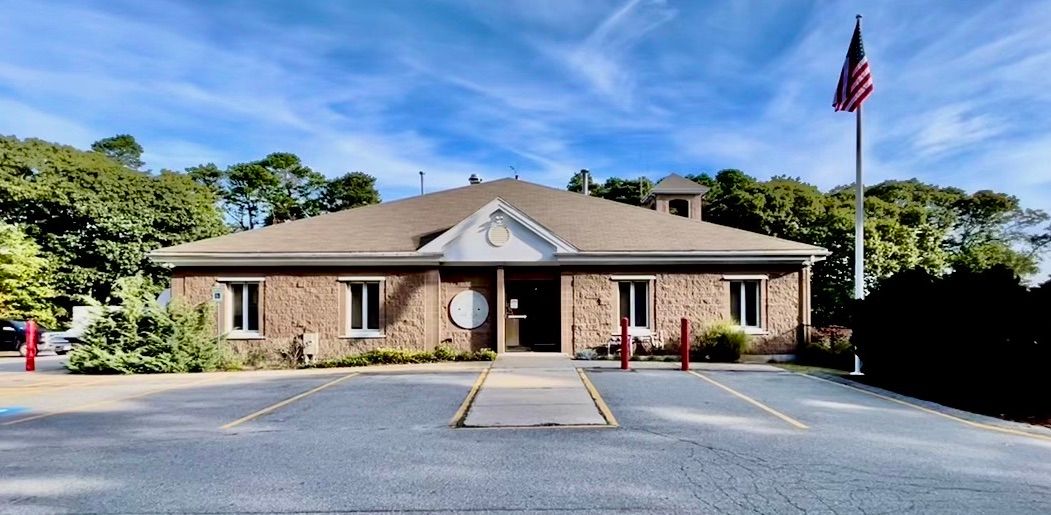
Fire Station Conundrum
Talks on where to build a new Fire Station are currently at a standstill, and the Select Board recently furloughed the Fire Station Feasibility Committee. (More on this in the Cape Cod Chronicle.) After many reports, meetings and studies, it was determined by multiple parties that an ideal site includes property belonging to Orleans Elementary School (any Middle School property was excluded from consideration by the Feasibility Committee as a possible site by a motion at the October 2021 Special Town Meeting). But talks stalled this summer when the Orleans Elementary School Committee stepped away, noting that its concerns were not acknowledged by the consulting firm hired by the Town.
The lack of available land downtown is at the heart of this dilemma, and presents challenges for other potential projects (a community center, a new library) that could greatly enhance community life in Orleans. Select Board Chair Andrea Reed told EXIT 89 she’d strongly encourage any commercial property owners who are considering selling to talk with the Town first.
“Their property could create a lasting and meaningful legacy of public good,” Reed said. “We are ready and willing to partner creatively — tax benefits and naming rights are on the table — with the larger goal of improving life in Orleans.”
Looking ahead, once Fire Station talks restart, the future of the aging Orleans Elementary School Building will likely be part of the conversation. A $100,000 study of the facility is currently underway. The results, due in early 2023, will help to determine whether OES needs to be re-built — and if so, when, where, and what size a new school might be.
On a related note, a master plan and design for the recreational spaces at Orleans Elementary School, Nauset Regional Middle School, and Eldredge Park is also underway. Recreation Advisory Committee Chair Tracy Murphy said the plan, which is being developed by engineering and design firm Weston & Sampson, will gather input from many local and regional stakeholders. Murphy said the goal is “to get a blueprint for how the recreational spaces at OES, NRMS — including the Skate Park — and Eldredge Park could most efficiently, effectively, and creatively be used.” Project recommendations are expected in the spring.
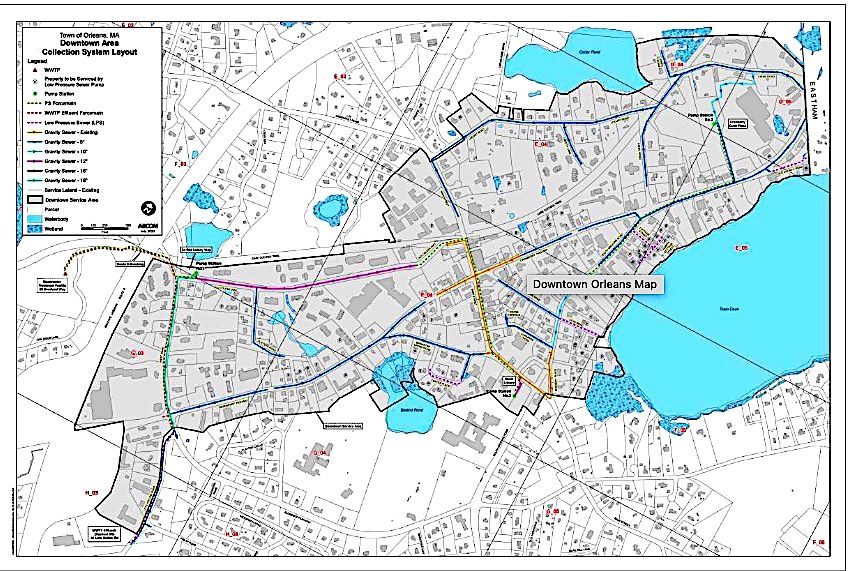
Sewers
Three cheers for Wastewater Treatment! Construction of the downtown sewers was finished late this fall and our stunning new wastewater treatment plant will soon be operational, after passing an important eight-hour “clear water test” on December 8. Once an official “approval” letter from the MA Department of Environment Protection (DEP) arrives, a hand-off from the plant’s builders to our own operators will occur later this month. As Kevin Galligan, the Select Board’s liaison to the wastewater project, described these developments to EXIT 89, this is a “major, major milestone for our town.”
Next steps: There are 480 connections into the new downtown sewer system, with a total of 1080 parcels, or “users”, involved. Each “user” will receive a notice from the Orleans Board of Health in early 2023 instructing them to tie into the new sewer system within a year. This process requires hiring an engineer, then a contractor. Engineering and contractor fees will depend on the configuration of your location (eg, the distance from your house to the sewer main in the road). Properties with existing Title V systems that are relatively new — less than ten years old — can receive relief from the one-year deadline by asking the Board of Health for more time to connect.
For property owners who are looking for specific instructions, here are shortcuts to navigating the Orleans wastewater website:
● Step-by-step instructions for connecting to the new lines can be found here.
● List of approved engineering firms is here.
● List of approved contractors is here.
● Frequently Asked Questions (FAQ) about our new sewer system are here.
EXIT 89 will continue to provide updates on the ongoing process of sewering Orleans to protect our water quality. Wastewater project ombudsman, Reggie Donoghue, is available by email (rdonoghue@town.orleans.ma.us) or phone (508-833-6967) to work with residents and address their concerns.
Next-Next Steps: Planning for Phase 2 — the sewering of the Meeting House Pond Area — continues. This work will begin in 2023 and end by 2025. Key dates in the project schedule can be found here. Strategies are still being worked out by the Wastewater Management Advisory Committee. Costs for the project will be finalized in 2024, according to Galligan, and will not reach property tax bills until January 2025.
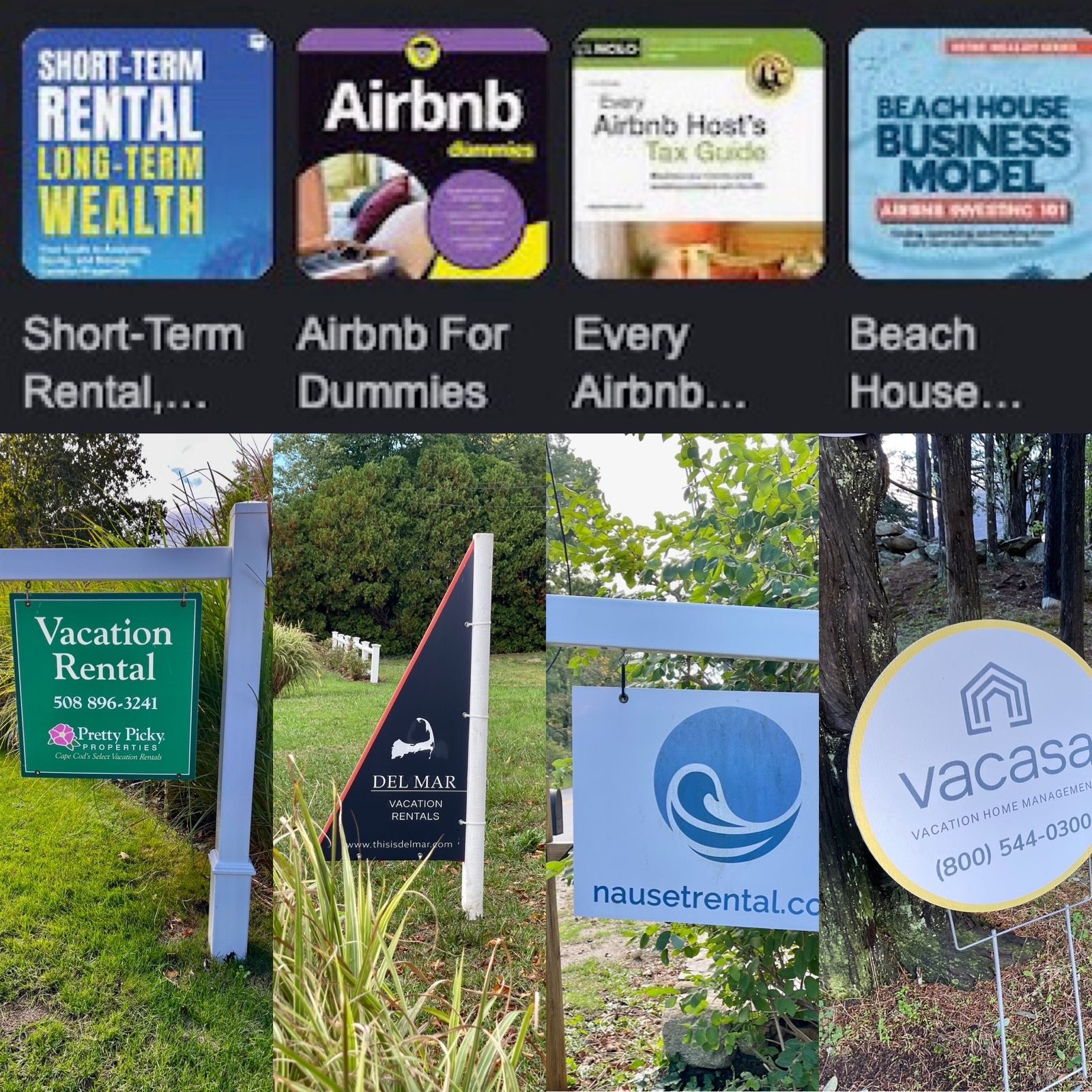
Another Swing at a Short-term Rentals Registration Program?
An initiative to create a short-term rentals registration program in Orleans was rejected at October’s Special Town Meeting after voters expressed confusion, concern and dismay over the many requirements and regulations included in the Article. Supporting the measure, housing advocates pointed out that while short-term rentals have done much to drive up the cost of real estate and compounded the region’s housing crisis, we don’t even know how many of these, or any rentals, exist in Orleans, much less who owns them or how they are managed. A registration program, they say, would help identify how many homes are vacation rentals vs. year-round rentals, and provide a clearer picture of what effect short-term rentals may be having on the housing market in Orleans. Proponents of a program say it would also help to protect the health and safety of renters.
Many Cape towns have been using rental registration programs for years. Truro, Harwich, Eastham, Mashpee, Yarmouth, Provincetown, Dennis and Falmouth require landlords to register short-term rentals and pay a fee. Barnstable has required all property owners to register rentals with its health department since 2006 — and even has a page on its town website where people can directly log rental complaints. In Chatham, where short-term housing is a $41 million annual business that generated $1.6 million in revenue for the town last year, the Chatham Select Board has established a working group to study the best way to develop a bylaw.
If you think Orleans should — or should not — take another swing at a rentals registration program, let the Select Board know.

Community Center + "Town Rec"
Now that the Community Center Feasibility Task Force has completed and presented an impressive final report — which recommends the creation of a “Director of Community Life” position, among other things — an effort to determine the future of the Orleans Recreation Department is also underway, which may have some bearing on a potential Community Center. A division of the Orleans Department of Public Works since 2013, “Town Rec” is currently the subject of a $15,000 organizational study approved at May’s Town Meeting and being conducted by the Edward J. Collins, Jr. Center for Public Management at the University of Massachusetts Boston. The firm recently met with the members of Town Government, the Select Board, the Finance Committee, and the Orleans Recreation Advisory Committee, as well as members of the public, to gather information on what is and isn’t working at the Orleans Recreation Department — and envision something better. (You can read more about that meeting in a Cape Cod Chronicle article here.) The study’s results are expected early in 2023.

ALL SIX BALLET QUESTIONS PASSED
The six general override questions (approved at October’s Special Town Meeting) needed to fully fund the new Police and Firefighter contracts passed at the Special Election on December 6. Of the 5,699 registered Orleans voters, there were 617 voters from Precinct 1 and 634 voters from Precinct 2 — a 22% total turnout. To see the final breakdown of votes, click here.
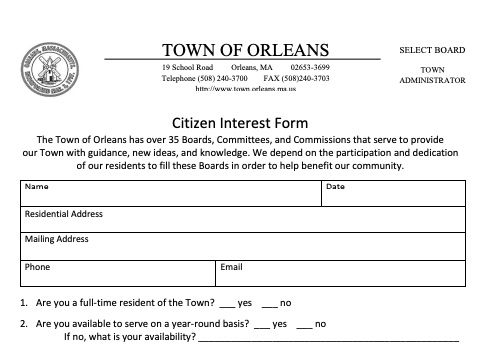
Want to Get Involved?
You can start online:
● List of Orleans Boards and Committees, click here
● Current list of vacancies, click here
● Information about volunteering, click here
● Citizen Interest form, click here

EXIT 89 is researched and written by journalists and authors Martha Sherrill and Emily Miller. Editing and tech support is provided by Kazmira Nedeau. The Advisory Board currently includes Lynn Bruneau and Elaine Baird. We are all residents of Orleans.
We have many new subscribers every month and are thrilled to be meeting a need.
If you have thoughts about subjects you’d like to see EXIT 89 cover in the future — Orleans issues that don’t make sense to you or seem underreported by the local press — please drop us a line at hello@exit89.org.
Happy Holidays!

